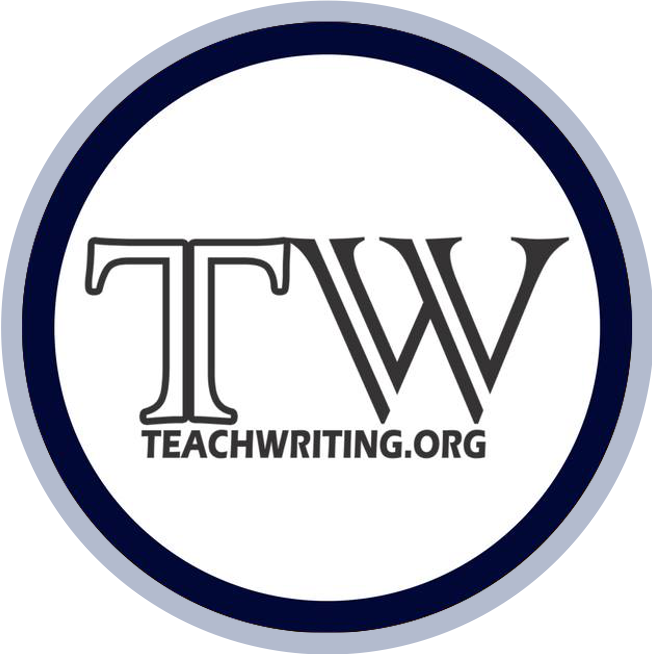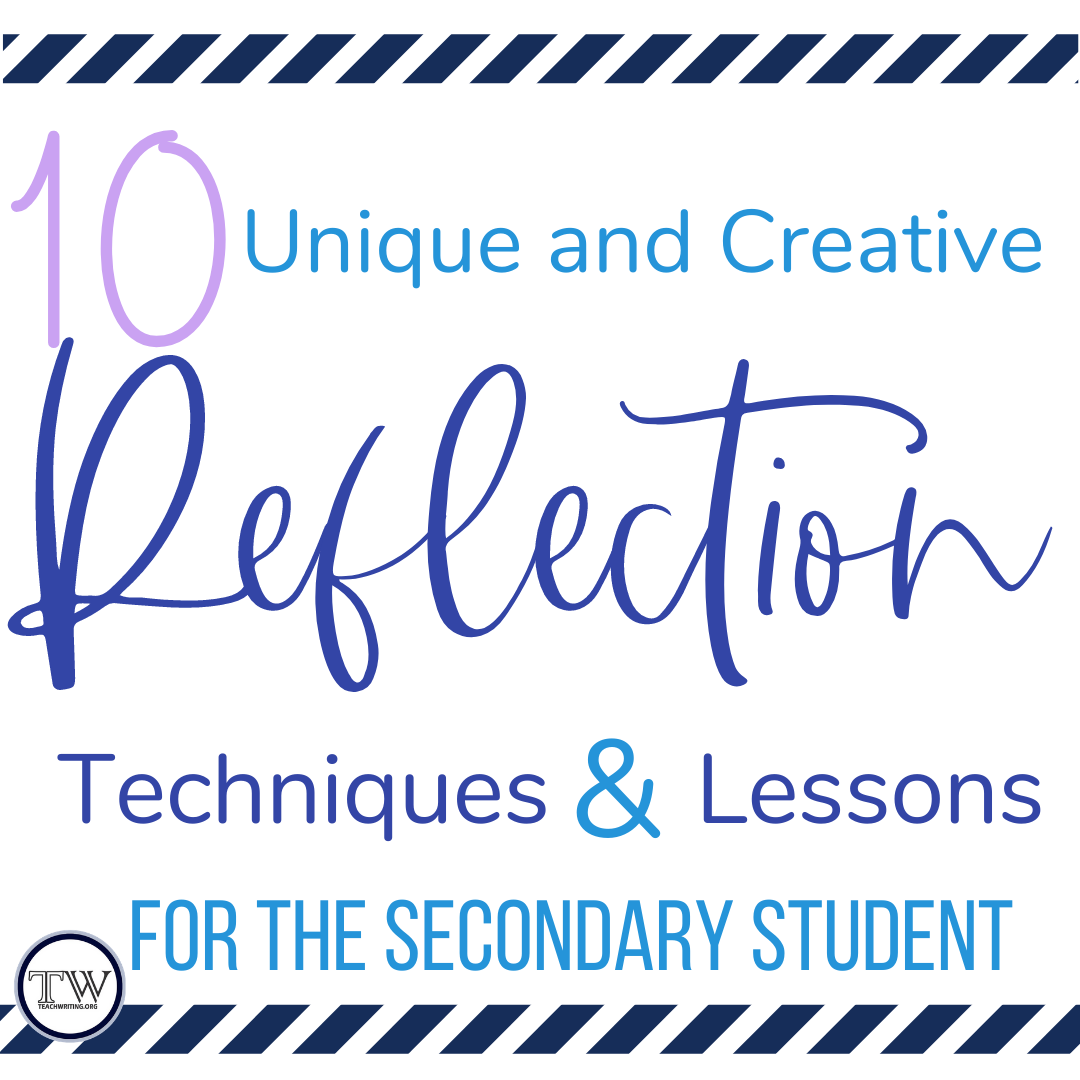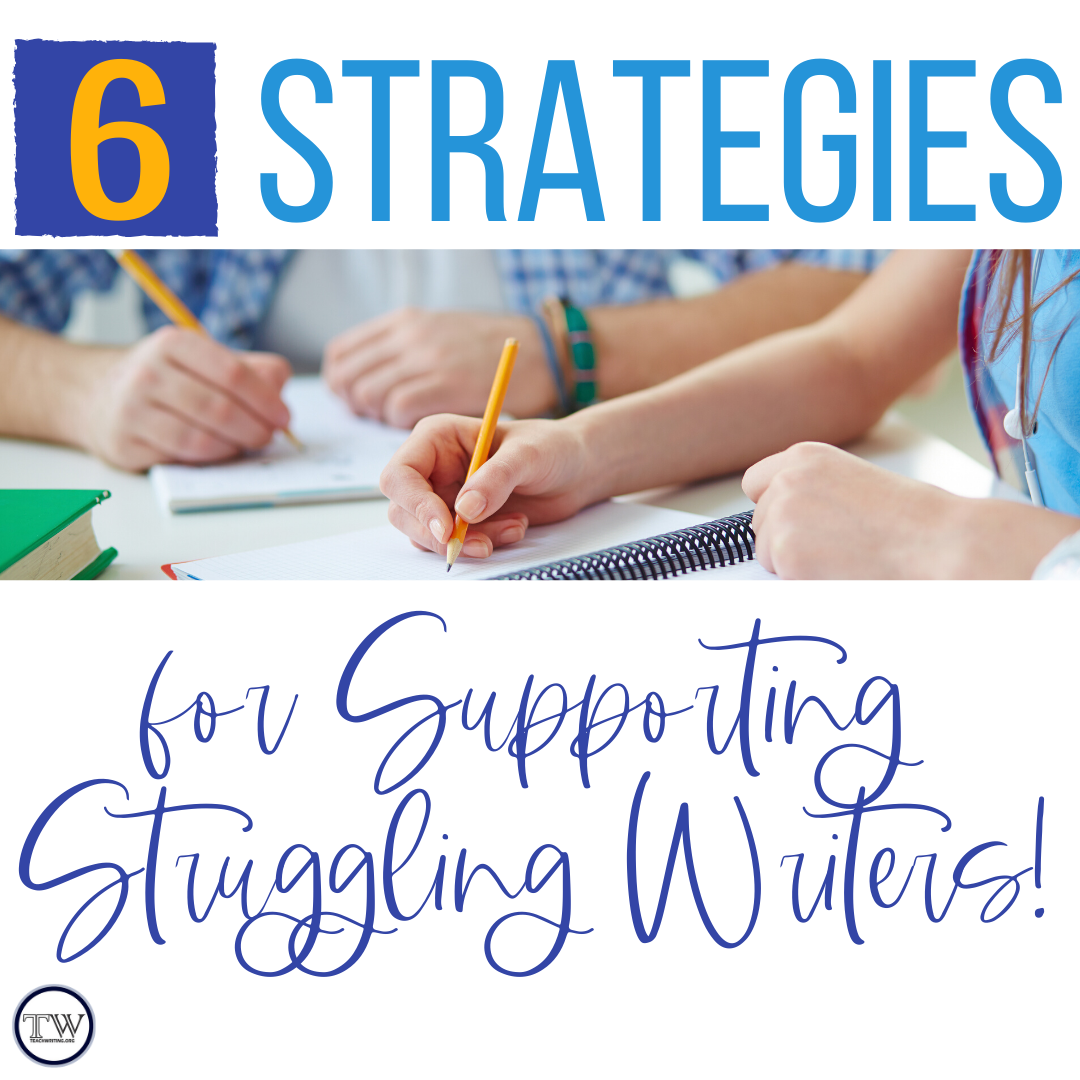Breaking the writing process up into two powerful sides of the brain can help students be more effective in the writing process. Let’s look at four different techniques to make this happen in the high school English classroom.
Read MoreI find myself dancing between grading essays online (via Google Spreadsheets and Doctopus/ Goobric) and printing out student essays to grade on paper. If you’d like more information on getting started with online grading using Google Spreadsheets, check out my YouTube tutorial for some helpful tips.
Read MoreGrading essays, or any written work for that matter, can be time consuming. So, as writing teachers, it’s important that we find efficient strategies for being able to provide constructive feedback but in a timely manner.
Here are three strategies for providing high-quality feedback on student writing.
Read MoreWe know as English teachers that writing workshop is a foundational approach to writing instruction in the modern classroom. But if you’re like me, I am always searching for new tips, tools, and resources for implementing writer’s workshop— to make it more manageable for me as a teacher as well as more approachable for my students.
Read MoreCheck out these FIVE alternatives to the traditional essay to challenge your students in new ways while also assessing the same important skills.
Read MoreDo your students struggle with citing and embedding quotations within their writing? I feel like I teach, reteach, teach again, remind again, comment again and again within feedback about these same skills… all. Year. Long. My Students tend to struggle with the formula for citing that text evidence correctly. I find that they frequently forget to move that end punctuation to after the citation, and they absolutely love to add the abbreviation for page into that citation. I cannot quite figure out why, but they just want to through the letters ‘pg.’ right in the middle of that parenthetical citation.
Read MoreGetting students to fully grasp the concept of tone and mood can be a truly difficult and daunting task. Students can have a very difficult time separating the mood they feel while reading from the author’s tone while writing. It can be even more challenging for students to think about the mood they wish a reader to feel while they are writing, which can require them to disregard their own tone.
Read MoreAs a writing teacher, the grading load can be pretty overwhelming. We’ve all carried that tattered folder stuffed with papers to and fro, to and fro, dragging it along to family vacations, coffee shops, and anywhere else where we think we might actually find the time to sit down and give feedback. But ack. Somehow the time never seems to come. And the folder just keeps getting more battered.
Read MoreAssessing individual student skills at the beginning of the school year is important for teachers to establish a baseline from which to monitor student growth. This is especially important at the secondary level where we have an influx of students from diverse educational backgrounds all converging into one larger secondary school.
Read MoreThis article is meant for secondary teachers who are on the fence about whether to try reading and writing workshop in their class next year. Below you'll find ten convincing (I hope) reasons why you should definitely give workshop a chance!
Read MoreWithin a literary analysis, students are required to think deeply about a given text, then make inferences and provide evidence to support that inference. Not only does the skill of drafting a quality literary analysis response support students in high school English classes, but will essentially define much of their English coursework in college.
Read MoreHow can teachers help older students enjoy writing? Negativity and reluctance is a mindset that is established early on. However, in middle and high school, certain teaching approaches and strategies can help to change the way students view themselves as writers. Create a positive writing culture and maintain it through the year. These nine approaches can help.
Read MoreThere are lots of creative ways to facilitate reflection at the end of the school year. Integrating novelty into any lesson makes it more interesting, and the same concept applies to reflection questions. So I set out to create an interactive "Prompt Sticks" Reflection Question game to get students more interested in assessing their learning at the end of the school year.
Read MoreLearn more about using Found Poetry and Blackout Poetry as a creative assessment for those reading standards!
Read MoreAs educators, we know how critical reflection is to the learning process. Getting students to reflect- deeply and meaningfully- is often one of the most challenging lessons we teach. I have found that both my middle school and high school students will often scoff at these reflection activities, providing the least amount of effort possible to complete the task they see as meaningless. I have been searching for and creating lessons and activities that will bring interest and engagement to this task. The following
Read MoreWhen planning for the beginning of the year, teachers need to choose writing assignments that allow for collection of pre-assessment data while also engaging students and building a positive writing community.
Read MoreThe beginning of the school year is an important time to assess the writing skill levels of new students in our English classes. One way to do this is to assign a diagnostic essay in order to "diagnose" each student's writing level...
Read More6 Strategies for Turning Struggling Students into Successful & Confident Writers!
Read MoreTeaching and assessing writing can be challenging, and even more so when you're trying to identify effective ways to scaffold writing instruction for struggling students. Set teenagers up for success by incorporating these teacher-tested, student-approved strategies.
Read MoreIf there’s one thing I don’t want to do, it’s sit my students down for a three hour matching and multiple choice exam at the end of the year. After nine months of creative units and showcase projects, this type of finale wouldn't be consistent with my course or my goals as a teacher.
Schedule
Read More



















